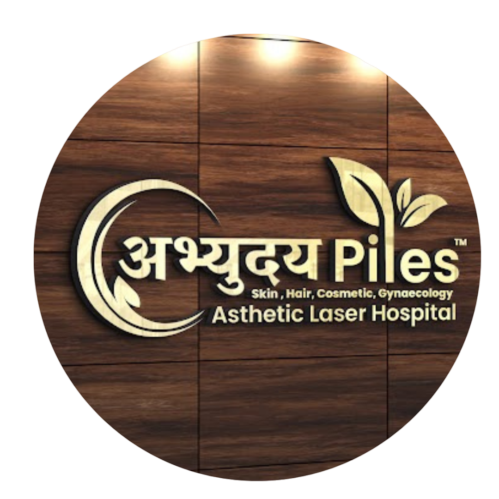Welcome To
Abhyudaya Hospital’s
The best hospital in Nagpur for Piles, Fissure, Pistula & pilonidal sinus
FAQ’s
How can I prevent piles?
Healthy bowel habits also help prevent hemorrhoids. Use the toilet as soon as you feel the urge to do so. Also, avoid sitting on the toilet for prolonged periods (more than five minutes) and avoid straining during a bowel movement. A healthy diet and lifestyle are good insurance for preventing hemorrhoids, whether you already suffer hemorrhoid symptoms or are intent on preventing them. Regular exercise is also important, especially if you have a sedentary job. Exercise helps in several ways: keeping weight in check, making constipation less likely, and enhancing muscle tone.
How do I know if I have piles?
First, your doctor will look at the anal area, perhaps by inserting a lubricated gloved finger or an anoscope (a hollow, lighted tube for viewing the lower few inches of the rectum) or a proctoscope (which works like an anoscope, but provides a more thorough rectal examination). More procedures may be needed to identify internal
What is fistula in ano ?
It is an opening around or near the anus, sometimes at a distance of 2 – 4 inches. It occurs with pus discharge, swelling or pain around that area.
Is fistula in ano a painful problem ?
Yes, Fistula in
Which age group & gender is more likely to have fistula in ano ?
What is the role of oral medications in fistula in ano ?
Is it hereditary ?
What are the complications ?
What is anal fissure ?
It is a wound present inside the anus where the inner skin of the rectum joins the outer skin of the anus.
Why does it occur ?
Frequent constipation, the resulting hardening of stools and the need to exert excess bowel pressure are the main causes. It may occur in any person but occurs
Why does it not heal on its own ?
Why is the surgery needed ?
Old wounds need an operation. Such wounds do not heal with medication and treatment. It is a small surgery carried out under general anesthesia given only for a short duration. The stiff muscles surrounding the anus are given a small cut or are stretched to relax them. The thickened edges of the wound are cut and removed. Only one day’s hospitalization is needed.
Does the operation cause any trouble ?
For about a week, the anal opening may be a little loose; there may be some amount of bleeding also. However, control over defecation remains intact. After 2-3 weeks, the wound completely heals and there is no further trou
Is infertility a woman’s problem?
It is a myth that infertility is always a “woman’s problem.” Of the 80 percent of cases with a diagnosed cause, about half are based at least partially on male problems (referred to as malefactors)–usually that the man produces no sperm, a condition called azoospermia, or that he produces too few
How is infertility tested?
For the woman, the first step in testing is to determine if she is ovulating each month. This can be done by charting changes in morning body temperature, by using an FDA-approved home ovulation test kit (which is available over the counter), or by examining cervical mucus, which undergoes a series of hormone-induced changes throughout the menstrual cycle. Checks of ovulation can also be done in the physician’s office with simple blood tests for hormone levels or ultrasound tests of the ovaries. If the woman is ovulating, further testing will need to be done. Common female tests
What is a kidney stone?
A kidney stone is the formation of crystalline structures in the urinary tract(which include the kidneys, ureters, and bladder). These stones can be small, from 1mm to very large, filling up an entire kidney.
Do I have a kidney stone?
For patients experiencing their first stone episode, the pain can be so severe and sudden that it stops them in their tracks. Without prior knowledge of what a stone episode feels like, it can be confusing and frightening to go through this amount of discomfort, which is usually described as the worst pain someone has ever experienced. A trip to the emergency room is usually required to make the diagnosis and provide treatment for an active kidney stone. X-rays, usually a CT scan, can be used to confirm that a stone is present.
Can I prevent another kidney stone?
Yes!, there are many effective ways to help prevent another stone. Basic dietary changes can reduce your chances of forming another stone by half while more involved medical treatment can reduce that even further. While these changes may not guarantee that you will not form another stone, they can make it less likely that you will have to experience another painful stone episode.

Book an Appointment Now
pppsahave@gmail.com
Call Us
9970743318
9270051446
Office & Clinic Address
Abhyudaya Ayurveda and Piles Laser Hospital®
Plot No.5, Mahapushp Society, behind Lohar Samaj Building, Shatabdi Square to Manish Nagar Road, Nagpur.
